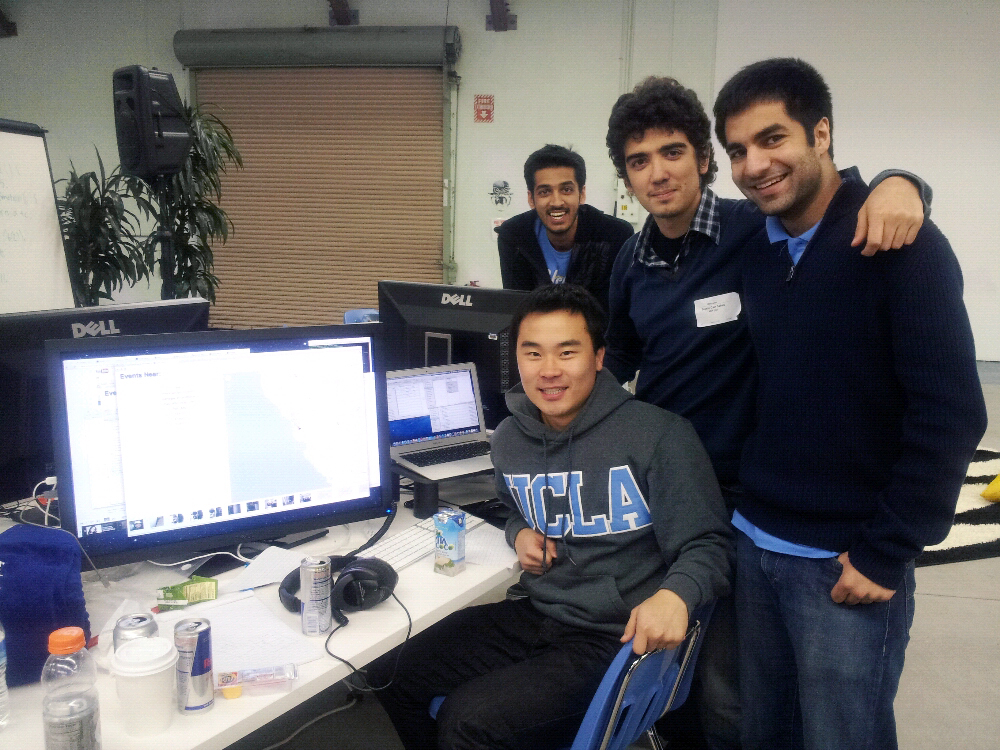Getting by on the adrenaline of an unlimited supply of Red Bull, four current and former UCLA computer science students sat in front of 30-inch computer screens at the Facebook grounds in Palo Alto last Thursday, writing code for a photo-streaming application.
It was the final stage of the national Camp Hackathon finals, hosted in Facebook’s Northern California headquarters.
The UCLA team, named “Funny Bones,” was one of 14 teams from around the country that participated in the event. Each team was given 24 hours to create a computer application.
UCLA’s team built an image-sharing site, where users can see the pictures uploaded in real time from events around them, said Song Zheng, a fifth-year computer science student on the UCLA team.
While people normally upload photos into static albums online, this application allows users to organize their photos by event and to upload them as the event happens. The application represents a new way to share photos, which is now done mostly through uploading to online albums such as Facebook, Zheng said.
The next day, the teams gave three-minute presentations on their projects in the Facebook cafeteria to a panel of judges composed of the website’s engineers.
The UCLA team won an honorable mention at the event. One judge mentioned that a company had already spent millions of dollars building a similar application, said Rajiv Makhijani, a member of the UCLA team who graduated last spring.
Facebook flew the competitors out to Palo Alto free of cost to participate in the event. The teams were also provided meals and given a tour of the Facebook grounds, Zheng said.
“They want to bring in smart engineers to hack and collaborate,” Zheng said.
The winning team, from Princeton University, created a fashion application where users take pictures of themselves or others and the application suggests what clothes to wear.
The UCLA team qualified for the finals after winning the SoCal Camp Hackathon hosted at UCLA in the spring. The group had formed at the last minute, some of them not meeting until the day of that event, Makhijani said.
After one of the original team members was unable to attend the national competition, the team called on Vineet Pandit, a UCLA alumnus, to fill in the vacancy. Makhijani had known Pandit as a student at UCLA.
Pandit flew in and arrived to the competition two hours late. He had to fly back immediately after the competition ended because of his demanding position as a quality assurance engineer at Rovi, a media information company.
The competition was an adrenaline rush from start to finish, Pandit said.
Pandit said felt honored that he was asked to join the group and added that the Hackathon was a great learning experience.
“It felt great representing UCLA,” Zheng said.
